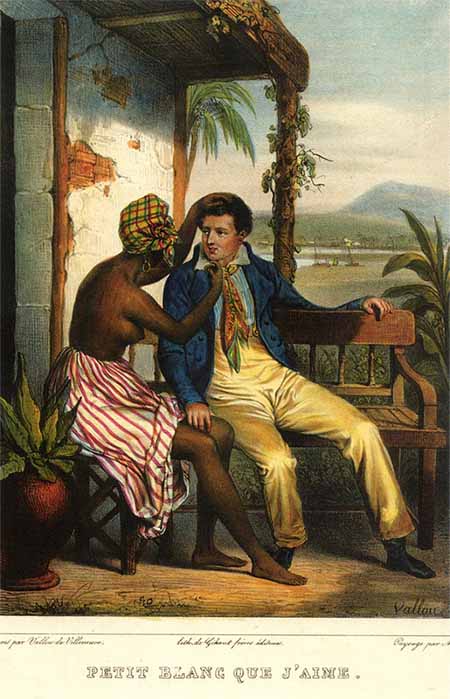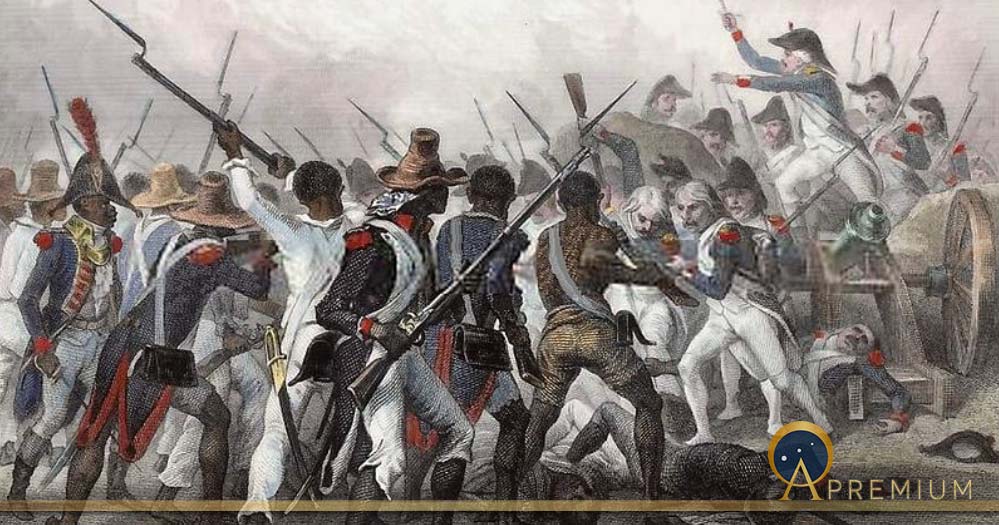Polish Legionnaires Fighting Along The Affranchi For The Black Independent Nation Of Haiti
The Haitian Revolution of 1791 to 1804 is commonly remembered as the most successful slave revolution of all time, resulting in the establishment of the first black nation of independence in the West Indies. However, less known is the crucial role that Polish legionnaires, originally brought across the Atlantic by Napoleon, played in the banishment of the French presence from an island regarded contemporaneously as the Pearl of the Antilles. This is the incredible story of one of the most unlikely partnerships of the colonial era, and of two completely different nations who found unity despite the enormous distance, cultural gaps, and linguistic gulfs that separated them.

The caption reads "the petit blanc whom I love." Intermarriage between Africans and Europeans created a multiracial Creole population in Saint-Domingue. (Julien Vallou de Villeneuve/CC BY-SA 4.0)
French Saint Domingue and the Rise of the Affranchi
In 1503 the first recorded African slaves set foot in Haiti following its discovery by Christopher Columbus in December 1492. After a period of Spanish rule, by 1659 the French had firmly entrenched themselves as masters of the north-western region of the island of Hispaniola, which Haiti shares presently with the Dominican Republic, with the foundation of a major settlement called La Cap, which was to serve as the capital of French Saint Domingue.

The Code Noir regulated behavior and treatment of slaves in the French colonies (Public Domain)
Establishing a plantation economy, Saint Domingue witnessed a massive influx of African slaves following the creation of the Compagnie des Indes Occidentales in 1664, and by 1791 there were at least 500,000 slaves resettled on the island. These serfs were stripped of their basic human rights following an edict of 1685 issued by King Louis XIV of France known as the ‘Code Noir’ which institutionalized discrimination and confirmed their position at the bottom of the pecking order.
However, structures were also put in place to make it possible for slaves to discard their chains through a process known as Affranchissement, creating an influential class of freedmen referred to as the Affranchi. As the Affranchi became more economically powerful by becoming slave-owners themselves, they began calling for the reclamation of their rights, founding the Société des Amis des Noirs to further their agenda.
Despite pushback from white slave masters, in 1789, a few months after the outbreak of the French Revolution, the French monarch Louis XVI rubberstamped France's National Constituent Assembly’s bill known as the Declaration of the Rights of Man and Citizens affirming the equality of all men.
Like this Preview and want to read on? You can! JOIN US THERE ( with easy, instant access ) and see what you’re missing!! All Premium articles are available in full, with immediate access.
For the price of a cup of coffee, you get this and all the other great benefits at Ancient Origins Premium. And - each time you support AO Premium, you support independent thought and writing.
Jake Leigh-Howarth holds a masters degree in Modern History from the University of Leeds, where he specialized in the travelogues of Western visitors to Soviet Central Asia. His favorite historical periods include the Tamerlane Empire, the Mongolian Empire, and the Eleusinian Mysteries of Ancient Greece.
Top Image: Attack and take of the Crête-à-Pierrot (March 24, 1802). Original illustration by Auguste Raffet, engraving by Hébert. (Public Domain)



















